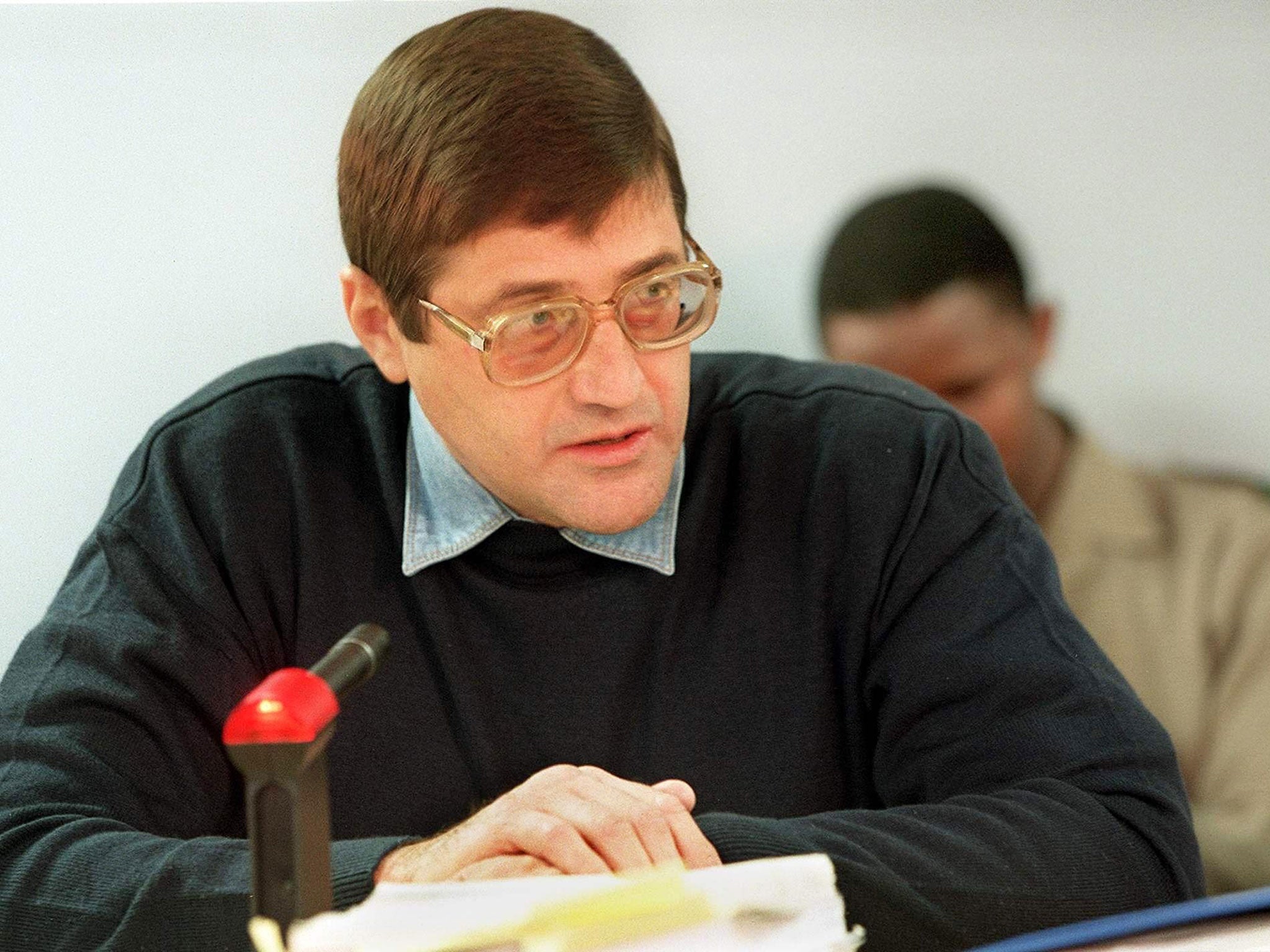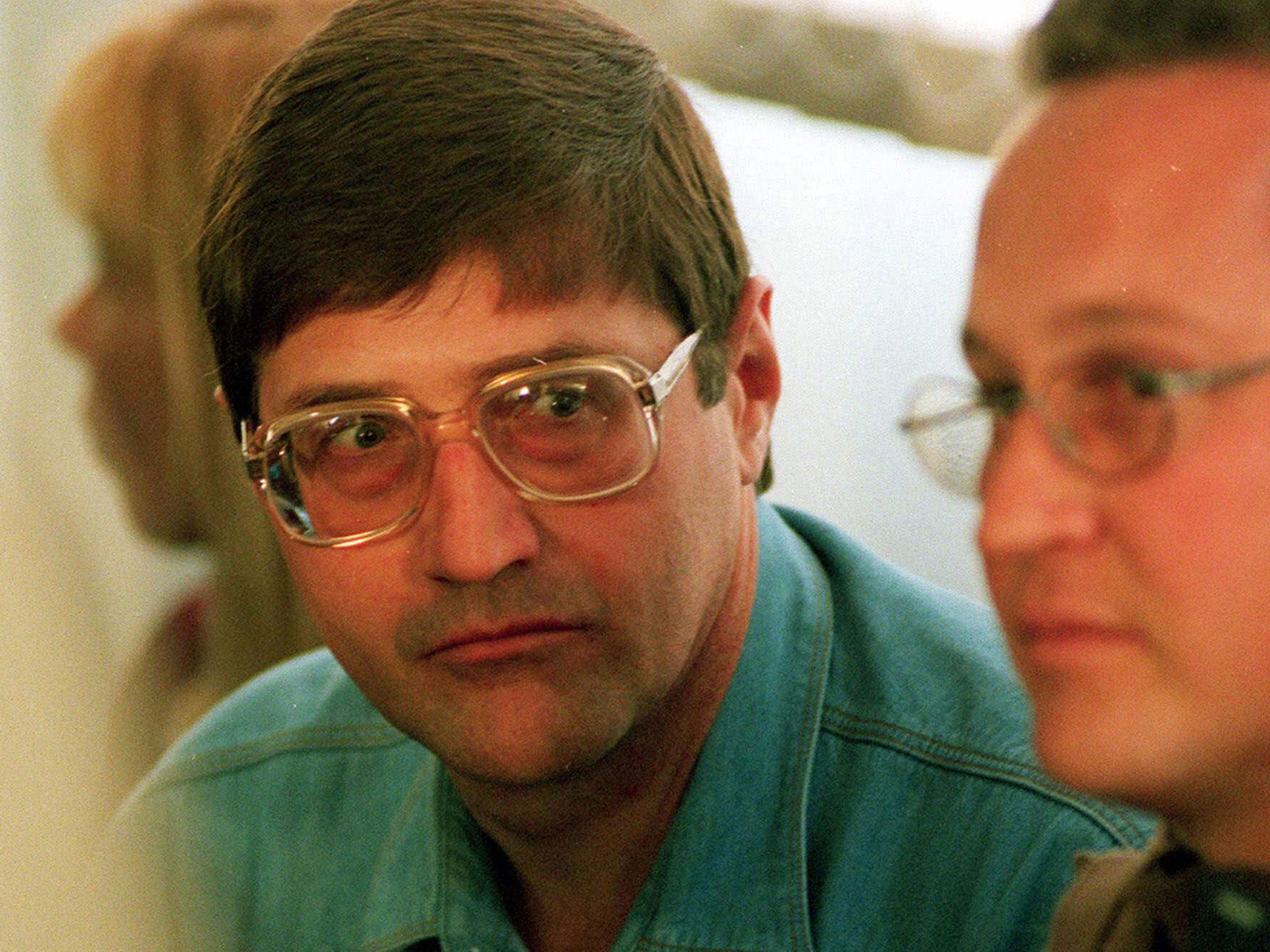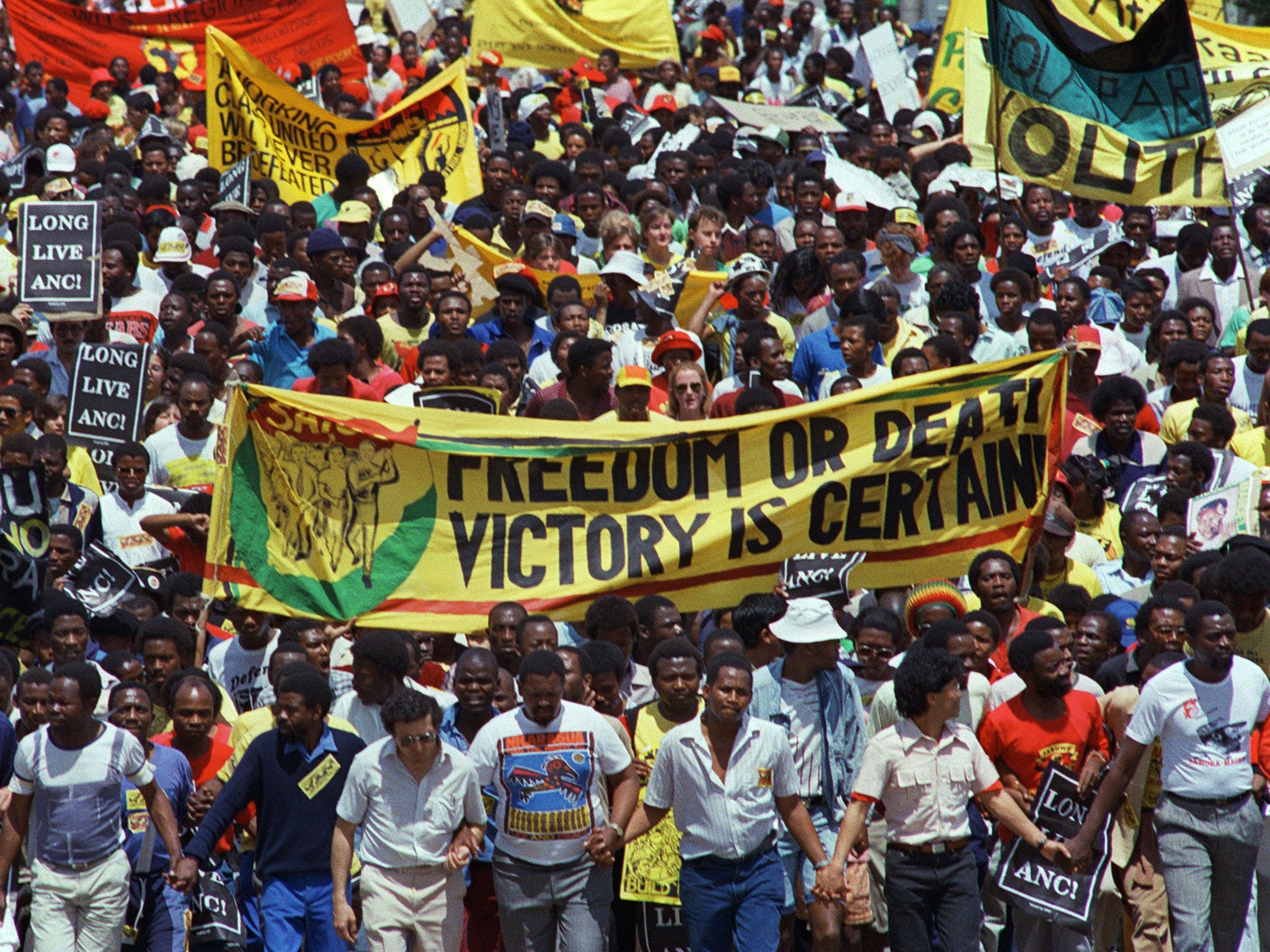'Prime Evil' apartheid death squad commander Eugene de Kock granted parole in South Africa
His undercover Vlakplaas police force assassinated anti-apartheid activists

Your support helps us to tell the story
From reproductive rights to climate change to Big Tech, The Independent is on the ground when the story is developing. Whether it's investigating the financials of Elon Musk's pro-Trump PAC or producing our latest documentary, 'The A Word', which shines a light on the American women fighting for reproductive rights, we know how important it is to parse out the facts from the messaging.
At such a critical moment in US history, we need reporters on the ground. Your donation allows us to keep sending journalists to speak to both sides of the story.
The Independent is trusted by Americans across the entire political spectrum. And unlike many other quality news outlets, we choose not to lock Americans out of our reporting and analysis with paywalls. We believe quality journalism should be available to everyone, paid for by those who can afford it.
Your support makes all the difference.The South African death squad leader known as “Prime Evil” for organising the murder and torture of anti-apartheid activists is to be freed from prison.
Eugene de Kock, now 66, was sentenced to life in jail plus 212 years for the numerous crimes he committed in the 1980s and 1990s but has now been granted parole after two decades behind bars.
The time and place of his controversial release will not be made public, Justice Minister Michael Masutha said, adding that De Kock had requested the conditions of his release remain secret.
Mr Masutha rejected the former police colonel’s parole request in July on the grounds that relatives of his victims had not had their say but said he has now granted it “in the interest of nation building and reconciliation”.

De Kock's death squad, the police’s C1 “counter-insurgency” Vlakplaas unit, targeted suspected opponents of white rule, killing and torturing dozens of anti-apartheid activists.
The accusations against De Kock and his unnamed subordinates included shooting, stabbing, burning and bombing their targets, including one man reportedly assassinated using explosive-rigged cassette player headphones.
After Nelson Mandela’s release in February 1990, he organised with Inkatha (the anti-ANC Zulu party) large-scale black-on-black violence with the object of derailing the African National Council’s hopes for a peaceful transfer of power.
Conflicts in Natal and Transvaal caused some 12,000 deaths between August 1990 and April 1994, and future President Mandela later wrote that he suspected “a hidden hand behind the violence…attempting to disrupt the negotiations”.
De Kock was arrested in 1994, when apartheid ended, and jailed after a trial in 1996.
During his time in prison, De Kock has made contact with some of his victims' families, asking for forgiveness, and helped authorities to trace activists who went missing during apartheid.
He confessed to more than 100 acts of murder, torture and fraud before the Truth and Reconciliation Commission, which granted him amnesty for most offences.
During the public hearings, he described the murders of a number of ANC members in several countries, including Lesotho, Swaziland, Zimbabwe and Angola, naming the police commander above him in each case, the BBC reported.

Sandra Mama, the widow of Glenack Mama who was murdered by De Kock in 1992, said she thought granting him parole was the right decision.
“I think it will actually close a chapter in our history because we've come a long way and I think his release will just once again help with the reconciliation process because there's still a lot of things that we need to do as a country,” she told the BBC.
She shares the opinion held by many South Africans that De Kock did not act alone.
“He got the instructions from the top and they got away with it. They're living, you know... they're amongst us today and one man is taking the fall,” she said.
Additional reporting by PA
Subscribe to Independent Premium to bookmark this article
Want to bookmark your favourite articles and stories to read or reference later? Start your Independent Premium subscription today.